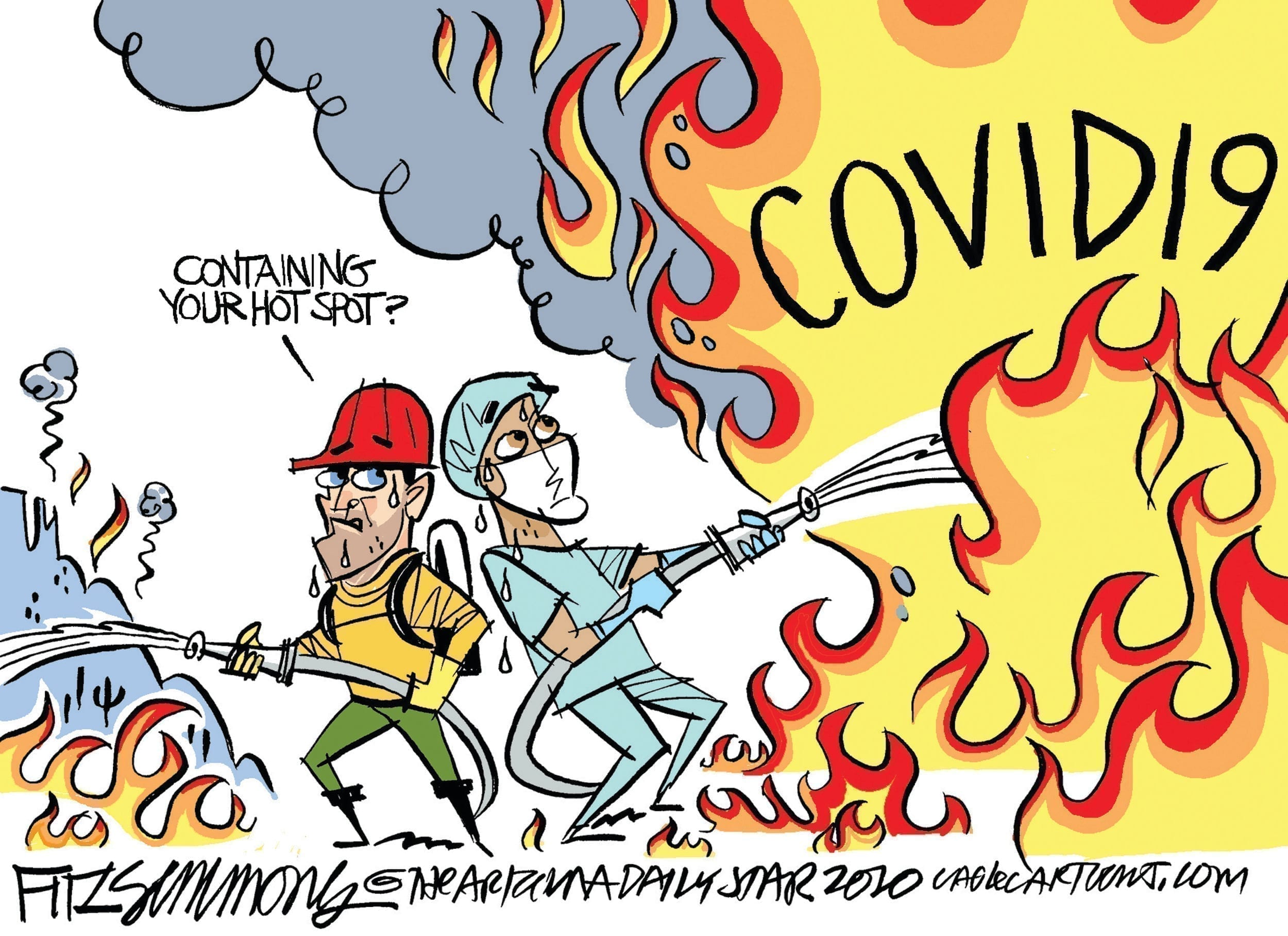
We’ve Found the Cure for a Pandemic!
Wow, what a relief that is. Here I was thinking it would take months for a new vaccine to eliminate the WuFlu and release Americans held hostage. All it really took to eradicate Pandemic Panic was looting a few Apple stores.
It was low tech, but it worked. Sure, there were millions of dollars in property damage and the reputation of law enforcement was tarnished. But look on the bright side: It’s been two weeks since we’ve had to listen to Dr. Anthony Fauci!
Just because we’re sweeping up glass and sand-blasting graffiti we shouldn’t forget the hidden victims of the Flu Manchu. Patients in hospitals and nursing homes dominated the airwaves for months. They were visible victims and the ostensible reason for the lockdown.
What we didn’t see were the invisible lockdown victims and they are just as real.
The Washington Examiner explains. “Doctors in Northern California say they have seen more deaths from suicide than they’ve seen from the coronavirus during the pandemic.”
Suicide is the most extreme manifestation of a widespread problem. The San Francisco Chronicle reports, “A third of Americans are showing signs of clinical anxiety or depression, Census Bureau data shows, the most definitive and alarming sign yet of the psychological toll exacted by the coronavirus pandemic.”
The question is how many instances of depression have victimized a particularly vulnerable segment of our younger population? A segment already wracked with insecurity, paranoia and all-pervasive anxiety.
You know who I’m talking about: Vegans.
These stick-figure fanatics put on a bold front, claiming how their grass-clippings diet makes them more energetic, cleansed and natural, but it’s all a delusion. One among many. Cornell University’s Daniel Rosenfeld published an article in Appetite that found vegetarians (viewed as heretics and backsliders by hard-core vegans) taken as a whole were more likely to be depressed than meat-eaters.
Psychology Today found a study of 90,000 adults conducted by French researchers. They analyzed normal, well-adjusted meat eaters, along with vegetarians, pescatarians and vegans. As anyone who’s ever eaten bacon for breakfast could have told them, “The incidence of depression increased with each food group that was given up. People who had given up at least three of four animal-related food groups (red meat, poultry, fish, and dairy) were at nearly two-and-a-half times greater risk to suffer from depression.”
It’s the pressure from the vegan’s Old Testament-like dietary laws. Each time they sit down to eat it’s a mini-broadcast of Dinner Plate CSI. Where did these vegetables come from? Was the greenery harvested within 100 yards of a cow? And am I depriving a harmless rabbit of his dinner?
Their rules for eating have replaced the old rules for sex in the vegan’s hierarchy of social taboos. A cultural reversal that makes church-going folks who’ll eat almost anything except bait and Chinese bats a bunch of licentious hedonists.
Now there is a literature sub-group composed of people who tell harrowing tales of abandoning the vegan lifestyle.
Victoria Hoff for example, “When I told my parents …I had decided to adopt a vegan diet, the declaration instigated an argument that ultimately ended in a vow from me. ‘I’ll only do this as long as it serves my health,’ …adding that I’d make good on the promise with regular blood testing to monitor my nutrient levels.”
That statement points out the basic flaw in the vegan lifestyle. Any food regimen that puts you on a kind of dietary life support – requiring regular medical monitoring to stave off death – is probably not good for you in the long run.
It certainly wasn’t for Victoria. She only lasted nine months.
Vegan blogger Jordan Younger told the New York Post, “My vegan diet almost killed me.” She was bloated, constipated and often felt so exhausted she had to blog from bed. When Younger announced she was embracing the cow, enraged cud-chewers crashed her website and issued death threats.
Fortunately for her, most of them were probably too weak to carry out the threat.
Inflicting a cellulose-only diet on yourself is bad enough. Doing to your children can be considered child abuse. Empty Prince Harry and his equally vacant wife, Meghan are toying with raising baby Archie as a vegan. In Belgium doctors say that’s dangerous and parents who do it should be prosecuted.
Meanwhile, if you haven’t heard from your vegan friend. Please check on them. They could have missed a blood test during the lockdown and be passed out on the floor.
–
Copyright 2020 Michael Shannon, distributed by Cagle Cartoons newspaper syndicate.
Michael Shannon is a commentator and public relations consultant, and is the author of “A Conservative Christian’s Guidebook for Living in Secular Times.” He can be reached at mandate.mmpr@gmail.com.



